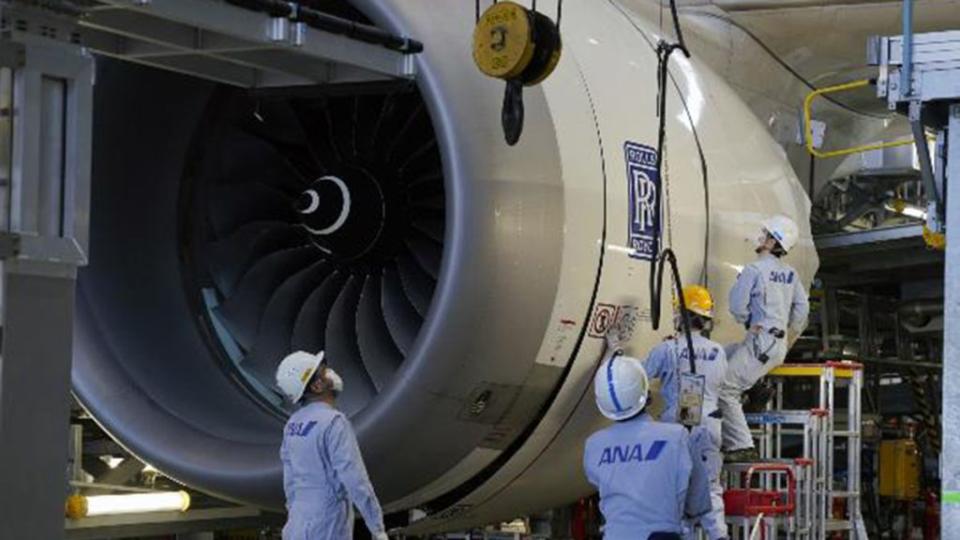The Rolls-Royce share price topped the FTSE 100 this year as investors cheered the new chief’s plan, but will the rally continue in 2024?

Rolls-Royce has been the talk of the City this year as new boss Tufan Erginbilgiç seems to have engineered a remarkable turnaround in the company’s fortunes.
Soaring demand for its jet engines amid a boom in travel, coupled with increasing military spending globally have been key to its success. What’s more, investors are now well behind Erginbilgiç’s no-nonsense cost-cutting approach as he looks to trim debts and improve profits.
The stats speak for themselves. Since the former BP exec joined on 1 January, the stock has risen over 200 per cent. Over the past few weeks, the Rolls-Royce share price has surged a further 22 per cent.
Reasons for optimism
“Investors are questioning whether expectations are too high. We do not think so.”
Goldman Sach’s assessment of the stock after reinstating their buy rating leaves little doubt of the optimism surrounding Rolls-Royce.
Travel demand has not yet reached pre-pandemic levels and airlines are placing order after order for new aircraft.
Meanwhile, global military spend is unlikely to die down any time soon amid resurgent conflict in the Middle East and the ongoing war in Ukraine. High barriers to entry mean fewer smaller competitors are sniffing around in the sector and Rolls-Royce has an enviable multi-billion order book, giving it a “good deal of future visibility” on revenues, according to Hargreaves Lansdown analysts.
Brokers at JP Morgan recently lifted Rolls-Royce’s stock to overweight from neutral, raising its target price from 235p to 400p.
Much of the hype around the stock’s performance has been driven by an extended period of failure before Erginbilgiç entered the stage. Rolls-Royce struggled for years under previous leadership, climaxing in a brush with bankruptcy over the pandemic.
To be fair, former boss Warren East had been dealt a bad hand. He had to deal with the fallout of claims the multinational had dished out bribes to secure contracts internationally, while the FTSE-100 firm had to rely on an emergency £7bn refinancing and asset fire sale to get through pandemic lockdowns. The company survived the pandemic, but only just.
Despite East’s efforts, in widely reported comments in January, Erginbilgiç said the company had been “grossly mismanaged” under previous leadership. That appears to have closed the book on one of the darkest eras in the company’s 116-year history.
Will it last?
Analysts have forecast earnings per share of 12.1p for 2024, higher than 2023 forecasts of 9.4p and Rolls-Royce has repeatedly upped its guidance in recent months.
Erginbilgiç has pledged to deliver £2.8bn in operating profit in the medium term, with a focus on bumping up margins in the group’s civil aerospace business. Full-year operating profit for 2024 is now expected to come in at between £1.2bn and £1.4bn, up from £652m in 2022.
But despite bullish forecasts, there are some potential headwinds on the horizon. Fears the travel market could dip in 2024 as pent-up demand, referring to consumers’ post-Covid desire to holiday, dries up, are not unfounded.
Coupled with higher energy bills and household costs, consumers may tighten their coffers, reducing airline’s spending power for big aircraft orders.
Debt also remains a key barrier. Hargreaves Lansdown analysts say Rolls has made “good headway” in pushing it lower, “but last we heard the group was still sporting a negative equity position – meaning liabilities outweigh assets – so we’re sceptical about seeing any kind of dividend this year.”
“Longer term, if cash flows keep improving then there could be scope to put dividends back on the table, but as always there are no guarantees,” they added.
And investors await the outcome of the UK government’s competition to build small nuclear reactors in the country. Rolls has spearheaded a British consortium designing small modular reactors (SMRs) for years and has been granted more than £200m in subsidies to develop the project.
But many in the sector were surprised when ministers opened the competition worldwide, with foreign rivals including Hitachi, General Electric and Holtec now pitted against the British manufacturer.
Great British Nuclear will announce which of them will receive government support by the spring of next year, with the contracts officially awarded in the summer.